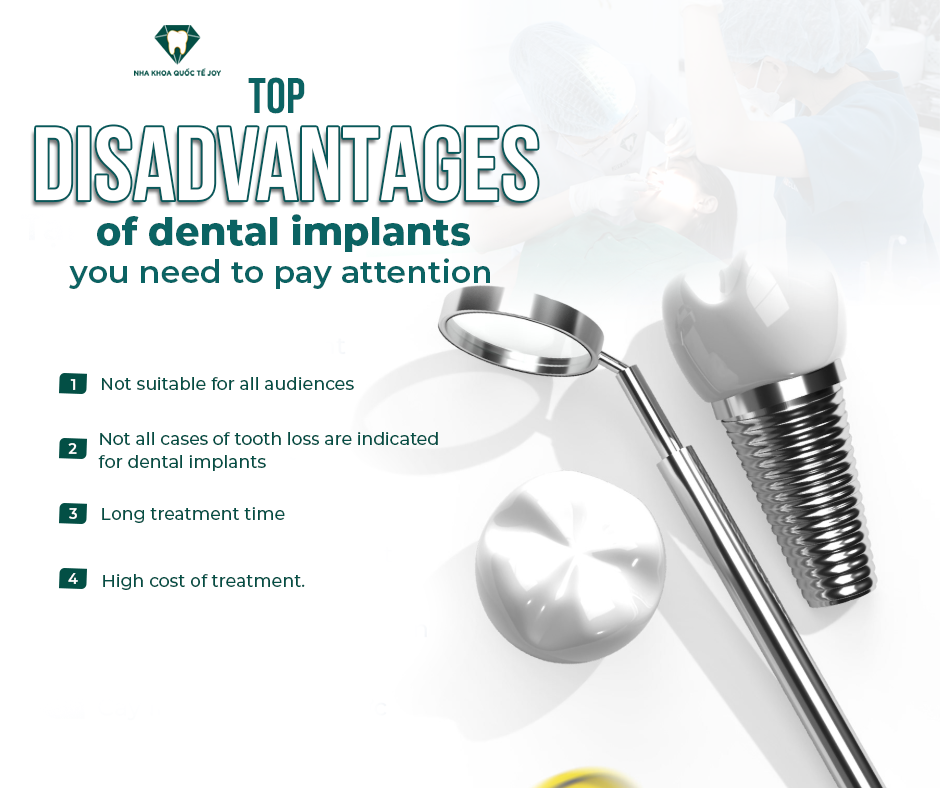Dental implants is one of the most advanced and modern tooth restoration methods available today. However, like any medical procedure, it comes with its own set of disadvantages that should be carefully considered. With the desire to provide a comprehensive and transparent view, Joy International Dental Clinic would like to share with you the potential drawbacks of dental implants. Let’s explore them together!
1. Overview of the Dental Implant Procedure
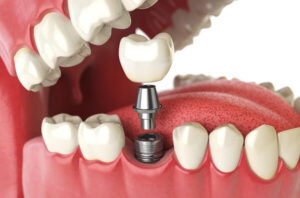
A dental implant is a cutting-edge technique used to replace missing teeth. This method involves inserting a titanium post directly into the jawbone to serve as an artificial root. After a healing period, during which the implant integrates with the bone (a process known as osseointegration), a custom-made crown is attached to the implant via an abutment.
The biggest advantage of dental implants is that they function as a standalone solution. They do not require grinding down adjacent teeth like traditional dental bridges. In addition, they help prevent bone resorption, maintain facial aesthetics, and offer a long-lasting solution. When properly cared for, an implant can last several decades.
However, no dental treatment is perfect. Therefore, it’s important to understand both the benefits and limitations before making your final decision.
2. Top Disadvantages of Dental Implants You Should Know
2.1 Requires High Level of Expertise
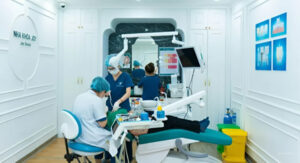
Dental implant surgery is a complex and delicate procedure. It demands a high level of technical expertise and extensive clinical experience from the dentist. Even minor errors in implant positioning, angulation, or soft tissue handling can result in serious complications such as infection, misalignment, bone loss, or implant failure.
That’s why it’s crucial to choose a reputable dental clinic with a team of implant specialists who are well-trained and experienced. This ensures both the safety and long-term success of your treatment.
2.2 High Treatment Costs
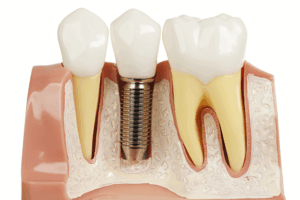
The cost of dental implants typically ranges from 10 to over 30 million VND (approx. 400 – 1300 USD) per implant, not including additional procedures such as bone grafts, sinus lifts, or ceramic crowns. This makes it a relatively expensive option compared to other tooth replacement methods.
However, when considering the long-term benefits—such as durability, improved function, and reduced need for future maintenance—dental implants are often seen as a worthwhile investment in your oral health.
2.3 Lengthy Treatment Time
A complete dental implant procedure usually takes between 3 to 6 months, or longer if additional procedures are needed. After placing the implant, patients must wait several weeks or months for the post to fully integrate with the bone before the crown can be attached.
This extended treatment timeline may not be suitable for those who need urgent restoration or have busy schedules. Fortunately, at clinics like Joy International Dental Clinic, modern techniques can significantly reduce the waiting time without compromising safety or aesthetics.
2.4 Dental Implant Not Suitable for Everyone
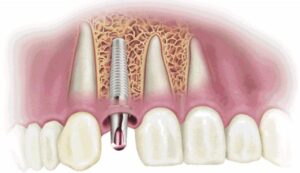
Not all patients are eligible for dental implants. Those with uncontrolled diabetes, severe heart disease, cancer, advanced osteoporosis, or bleeding disorders may not be suitable candidates due to increased risks of complications and poor healing.
Additionally, children under 16 years of age, whose jawbones are still developing, are generally not recommended to undergo this procedure. In such cases, alternative treatments may be more appropriate and safer.
2.5 Requires Modern Equipment and Facilities
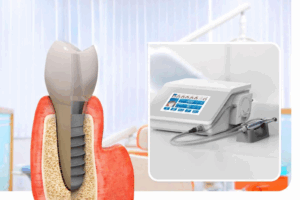
To ensure precision and safety, dental implant procedures must be performed in clinics equipped with advanced technology—such as 3D Cone Beam CT scanners, digital planning software, surgical guides, and ultrasonic surgery equipment. The surgical environment must also be sterile to minimize the risk of infection.
Clinics lacking these technologies may face challenges in diagnostics, leading to improper implant placement and higher failure rates. That’s why selecting a dental clinic that invests in state-of-the-art equipment is critical to your treatment’s success.
2.6 Implant Longevity Depends on Multiple Factors
Although implants are designed to be long-lasting, their actual lifespan depends on various factors: the dentist’s skill, the implant brand, the quality of the crown, and most importantly, the patient’s oral hygiene habits and lifestyle.
Poor oral care, smoking, or neglecting dental check-ups can lead to peri-implantitis (infection around the implant), mobility, or even implant failure. Therefore, regular maintenance and proper hygiene practices are essential to preserve your implant’s health over time.
2.7 More Food Trapping Compared to Natural Teeth
Some patients report that food tends to get trapped between implants and adjacent teeth more easily than with natural teeth. This can lead to discomfort and increase the risk of decay or gum inflammation if not cleaned properly.
However, this issue is easily manageable with proper oral hygiene, including the use of dental floss, interdental brushes, or water flossers, as advised by your dentist. So don’t let this discourage you from considering implants as a solution.
3. Helpful Advice Before Getting Dental Implants
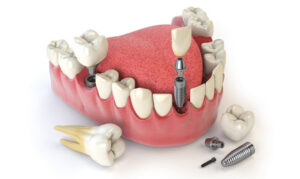
To ensure the best possible outcome with minimal risks, here are a few tips for those considering dental implants:
-
Undergo a thorough consultation and 3D imaging scan to assess bone quality and determine a personalized treatment plan.
-
Choose a reputable clinic with experienced implantologists and modern technology.
-
Fully disclose your medical history and current health conditions so your dentist can provide appropriate recommendations.
-
Follow your treatment schedule and attend all follow-up appointments.
-
Maintain excellent oral hygiene by brushing, flossing, and using antimicrobial rinses.
-
Visit your dentist regularly for professional cleaning and implant check-ups.
Conclusion
Dental implants are a revolutionary solution for replacing missing teeth. They offer superior functionality, aesthetics, and long-term benefits. However, they do come with certain drawbacks that patients should understand and prepare for. With a skilled dental team and the right technology, many of these challenges can be minimized or even avoided.
At Joy International Dental Clinic, we are proud to offer advanced implant services delivered by experienced doctors in a state-of-the-art environment. We are committed to bringing you a safe, aesthetic, and long-lasting smile.

